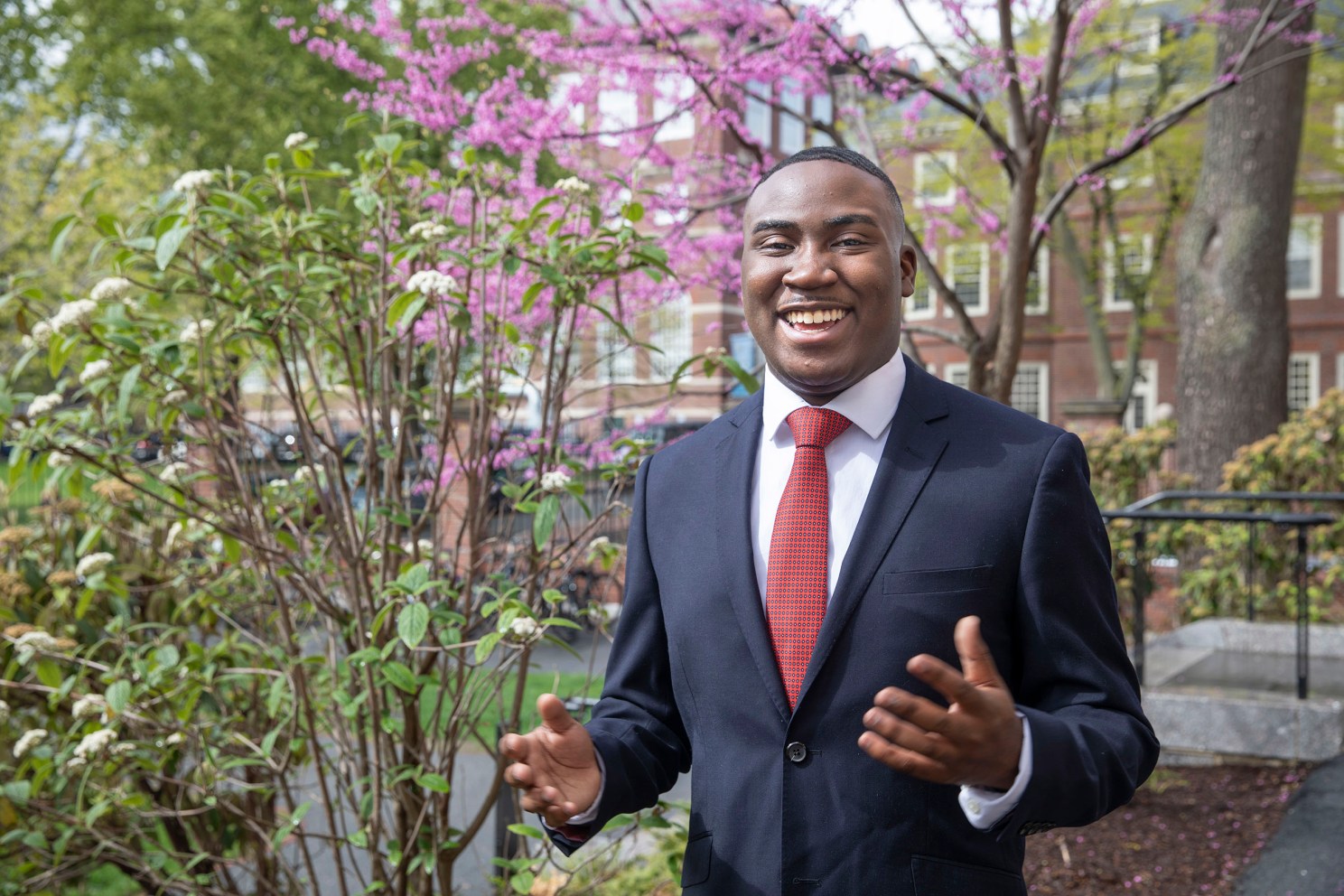Travis Johnson ’24 named Truman Scholar

Travis Johnson plans to attend law school. Kris Snibbe/Harvard Staff Photographer
Travis Johnson ’24 wants to even the playing field. After all, the government concentrator, who has just been named a Harry S. Truman Scholarship Foundation scholar, knows something about inequity.
“When I was a first-year, I needed a tie for an event, and didn’t have one,” recalled Johnson, who serves as Harvard Undergraduate Association co-president. “I had to reach out to friends and ask, ‘Can I borrow one?’” Recognizing the problem was not uncommon, he and HUA co-president Lylena Estabine started the Crimson Career Closet, which loans interview-ready clothes. They have also worked to increase the scope of a popular book stipend.
“One of the goals of Harvard is to promote academic freedom and to create citizen leaders. But if there’s a $70 textbook for this class and you can’t afford that, we wouldn’t want that to be an inhibitor in someone’s success,” said the new Truman Scholar.
The merit-based federal scholarship, which this year was awarded to 62 students, recognizes juniors who are intending to enter public or government service. Recipients of the honor, which comes with up to $30,000 for graduate school, are required to work in public service for three of the seven years following completion of a foundation-funded degree program.
Johnson, a South Carolina native, plans to attend law school. Growing up in the small community of Sumter, he always wanted to be a lawyer. But that desire sharpened when a relative was arrested for possession of marijuana.
“Even though studies show that Black people and non-Black people use marijuana at a similar rate, Black people are likely to be over-incarcerated for it,” he said.
“The Department of Justice played a huge role,” added Johnson, resulting in “such a negative impact on communities like mine.”
That’s why the Winthrop House resident intends to use his Truman Scholarship to pursue a legal career that changes the system from within, ideally with the DOJ.
“In our criminal legal system, prosecutors are the ones who have the authority and leeway to decide which charges to bring, what sentence to recommend. As a result of growing up in a community that was impacted by the school-to-prison pipeline, I can bring my lived experience to the table and say: Maybe we don’t need to arrest this person. Maybe we just need a pre-trial intervention program. Or maybe they just need more support rather than imprisoning them,” he said.
Johnson already has some experience. Last spring, he worked at the Democratic National Committee, in the office of the chairman Jaime Harrison, who’s also from South Carolina. “That was really important and powerful for me because criminal justice reform was one of the prime issues that we worked on.”
Johnson reflected on how his varied experiences have brought him to this point — and may carry him to the DOJ. “I would be remiss if I didn’t thank everyone both from my home state, but also the people at Harvard who have really guided me on this journey. They’ve taught me how to be a better leader.”




